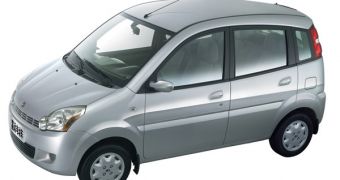It is a well-known fact that China is the largest and most populated country in the world. Statistics for this year show that more than 1.3 billion people (1,330,044,605 in mid-2008, to be more specific) can call China their home. With a rate of 3 cars to every hundred people, although pretty far behind the worldwide average of 12 to a hundred, considering the nation's large population, China still comes in as the second leader on a global scale in terms of car numbers, after the US.
And there is more than just the cars. The vast amount of vehicles – about 160 million units in 2006 – is responsible for the consumption of an enormous amount of fuel, as well as for considerable carbon dioxide emissions. Based on the evolution of the respective market, it is estimated that by 2050, the number of Chinese motorized vehicles will reach a worrying 700 million, raising both fuel consumption (up to 20 million barrels of oil daily) and pollution figures (3 billion metric tons of carbon dioxide per year) by more than 4 times. This is the main reason why China truly has to go green in this respect.
The prospects of this national urgency have caught the attention of major alternative fuel vehicle manufacturers worldwide. Besides this, the “863 Initiative,” on which the Chinese government embarked early last year (involving research institutes, universities, and private companies in a search for better environmental vehicle solutions), may provide the solid grounds that alternative vehicles need. A national network of electric vehicle chargers is also under development.
General Motors is trying to make its way in the first row of competitors for the electric vehicle market, but it's a tough task, given the large number of similar attempts by other important manufacturers. Many companies are also pouring funds in research into electric solutions, such as lithium-ion storage devices. Asian companies seem to have gained the upper hand, though, as Mitsubishi intends to have its first i MiEV electric car sold in China by 2009, one year earlier than rivals from General Motors or Renault-Nissan.

 14 DAY TRIAL //
14 DAY TRIAL //